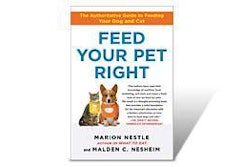What is stress
Surprisingly, there is currently no real agreement on the definition of stress. In general, stress is considered a normal reaction to a threatening situation, causing a variety of physiological and behavioral adaptation responses. Anxiety is a bit different since it defines an emotional state provoked by the anticipation that something harmful will happen even if there’s no obvious threat. Stress can be acute—a response to an immediate threat—or chronic, continuing over a long period. Experts may distinguish physiological stress due to illness or environmental challenge from psychological stress, which occurs in response to perturbations in pets’ everyday life, such as separation from a family member. Whatever their origin or exact definition, both stress and anxiety can lead to a loss of self-control and adaptability and, in the long term, have negative effects on pets’ health and relationship with their owners.
Dogs and cats are treasured family members who share every aspect of their families’ lives, but that doesn’t mean they are free from stress. And pet lovers feel it. When consulting their veterinarian about a pet’s unwanted behavior, owners frequently say such things as “My dog is stressed when I leave him at home” or “My cat has been anxious ever since we moved.”
Stress mechanisms and consequences on health
The physiological mechanisms of stress are complex and involve both the nervous and hormonal systems. When the brain perceives a threat, whether real or imagined, it transmits nervous impulses to adrenal glands, which release adrenalin and noradrenalin. These molecules stimulate the heart, lung and muscles to enable a quick reaction. A specific chain of hormonal reactions is also activated by the brain and ultimately provokes the discharge of cortisol and corticosterone in the organism. These hormones induce various metabolic changes such as inflammation or alteration of the animal’s immune function.
Why pet stress affects the human-animal bond
The problem is that besides their negative impact on pet health, stress and anxiety provoke specific pet behaviors considered as nuisances by the owner. Stressed or anxious pets are more sensitive to new or unexpected situations. If they aren’t sure how to respond, they may exhibit inappropriate behaviors. In dogs, sudden and acute stressors can for instance cause trembling, panting, or incapacity to respond to owner requests. Some dogs submitted to stress will bark continuously and even growl aggressively, possibly creating misunderstandings with the owner and altering their relationship. When suffering from chronic stress, cats can develop annoying behaviors such as anorexia, continuous meowing, or urinary marking in the home, the latter being particularly offensive for owners. When stress and anxiety cause pets to act out, pet parents respond in the same way they do when their children misbehave: with anger or embarrassment. Moreover, according to recent research, when pets are anxious because of an illness, their owners become more stressed and anxious themselves. That can also result in poorer quality of life on both sides.
How to deal with stress
There are two main strategies to treat pet stress. The most common one includes the use of anxiolytics. However, these drugs generate habituation issues and pet parents tend to prefer more “natural” ways to manage their pet behavior. An interesting alternative consists of using natural dietary solutions to improve pets’ ability to cope with stress. Applied in diets, treats or nutritional supplements, natural ingredients can help dogs and cats better handle their physiological and emotional reactions to threatening situations. This approach might be particularly adapted in specific cases such as weaning, holidays, separations, hospitalization, or introduction of new pets at home.
Finishing reading the entire article at appetizerblog.com

















